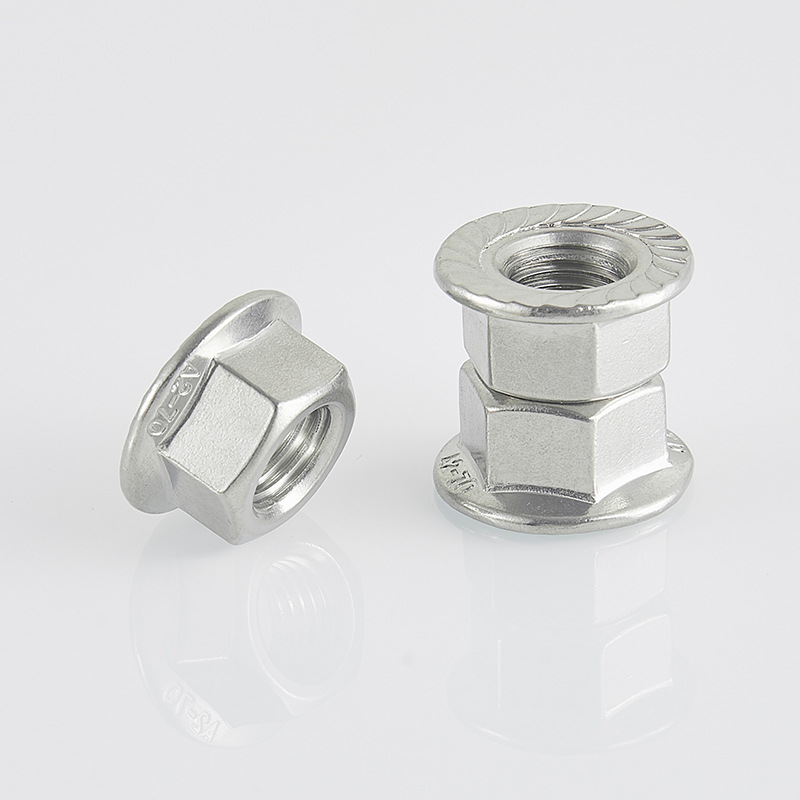

m8 bolt
Dic . 05, 2024 14:03 Back to list
m8 bolt
The Significance of M8 Bolts in Engineering and Manufacturing
In the realm of engineering and manufacturing, the importance of fasteners cannot be overstated. Among the myriad of fasteners available, the M8 bolt emerges as a significant component used across various industries. The M designation refers to the metric measurement system, indicating that an M8 bolt has a nominal diameter of 8 mm. In this article, we will explore the characteristics, applications, and advantages of M8 bolts, highlighting their crucial role in ensuring structural integrity and reliability.
Characteristics of M8 Bolts
M8 bolts are known for their versatileness and durability. They are typically made of high-strength materials such as carbon steel, stainless steel, or alloy steel, which enhance their performance capabilities, especially in demanding applications. The tensile strength of M8 bolts can vary significantly depending on the material and manufacturing process. For example, common grades like 8.8, 10.9, and 12.9 indicate increasing strength and load-bearing capacity, making it easy to select a bolt that meets specific engineering requirements.
The standard length of an M8 bolt can range from 10 mm to over 100 mm, providing flexibility for various applications. Additionally, M8 bolts are usually equipped with various types of heads, including hexagonal, socket, or flat heads, allowing for different installation and torque applications. The threading of M8 bolts also adheres to standard pitches, typically 1.25 mm, ensuring uniformity and ease of assembly.
Applications of M8 Bolts
M8 bolts find extensive applications in many sectors, including automotive, aerospace, construction, and machinery manufacturing. Their strength and reliability make them suitable for critical applications where safety and performance are paramount. In the automotive industry, for instance, M8 bolts are frequently used to secure engine components, suspension systems, and body panels. Their ability to withstand dynamic loads and vibrations makes them ideal for sustaining the structural integrity of vehicles.
m8 bolt

In the construction field, M8 bolts are often utilized in the assembly of structural steel frameworks, where they connect beams, columns, and other components. They provide the necessary clamping force to ensure that the structures are stable and secure, meeting rigorous safety standards. Furthermore, in machinery manufacturing, M8 bolts play a vital role in assembling equipment, ranging from simple machines to complex industrial systems.
Advantages of Using M8 Bolts
One of the primary advantages of using M8 bolts is their high level of compatibility with various nut types, washers, and other fastening accessories. This compatibility not only facilitates ease of assembly but also enhances the overall reliability and performance of the fastening system. The availability of M8 bolts in different grades and materials means that engineers can select the most suitable bolt for specific applications, optimizing both strength and weight.
Moreover, M8 bolts’ resistance to corrosion, especially in stainless steel form, makes them an excellent choice for outdoor applications or environments where moisture and chemicals are present. This resistance prolongs the lifespan of the bolt, reducing maintenance costs and downtime in industrial settings.
Another significant advantage is the standardized nature of metric bolts, which ensures easier interoperability between components in different systems. As industries increasingly adopt international standards, the M8 bolt's metric system allows for smoother transitions and replacements, further enhancing its application scope.
Conclusion
In conclusion, M8 bolts are indispensable components in modern engineering and manufacturing. Their diverse applications, coupled with their strong mechanical properties and compatibility with other fasteners, make them a preferred choice across various industries. As we continue to innovate and push the boundaries of technology, M8 bolts will remain a fundamental element, ensuring that structures and machines can operate safely and efficiently. The ongoing development of materials and manufacturing processes will likely yield even more advanced M8 bolt designs, further establishing their significance in the field of engineering. Knowing their characteristics, applications, and advantages is essential for engineers and manufacturers alike, as they strive to build reliable, efficient, and safe products in an ever-evolving landscape.
Latest news
-
Hot Dip Galvanized Bolts-About LongZe|High Strength, Corrosion Resistance
NewsJul.30,2025
-
High-Strength Hot Dip Galvanized Bolts - Hebei Longze | Corrosion Resistance, Customization
NewsJul.30,2025
-
Hot Dip Galvanized Bolts-Hebei Longze|Corrosion Resistance&High Strength
NewsJul.30,2025
-
High-Strength Hot-Dip Galvanized Bolts-Hebei Longze|Corrosion Resistance&High Strength
NewsJul.30,2025
-
Hot Dip Galvanized Bolts-Hebei Longze|Corrosion Resistance&High Strength
NewsJul.30,2025
-
Hot Dip Galvanized Bolts - Hebei Longze | Corrosion Resistance, High Strength
NewsJul.30,2025

